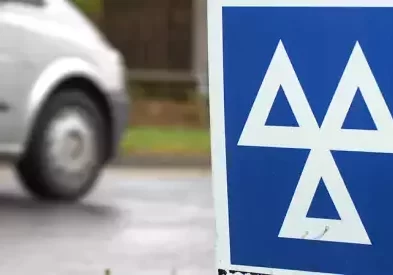Insight

Red Marlin January PR award
The nation had been on tenterhooks for months – years, even. How had he done it? Who had helped him? Where had he been since then? How would he reintroduce himself?
Yes, January 2014 saw the hit BBC drama Sherlock return to our screens, promising to reveal the secret to how the rebooted detective had survived his fall from the roof of St Bart’s at the end of the previous series two years ago.
The BBC’s public relations machine swung into action to promote the new trio of shows. A good old stunt got things going when the date that the first episode, titled ‘The Empty Hearse’, would air was revealed emblazoned on an actual hearse that drove through the streets of London.
A further highlight was a special ‘mini episode’, available in advance only on the BBC iPlayer, which saw a formerly wary associate of Holmes’ trying to convince a cynical Inspector Lestrade that a succession of strange occurrences, happening ever closer to London, proved that Sherlock was alive. This all created a huge buzz on social media channels including Twitter, where chatter spread alongside the #SherlockLives hashtag.
Then there was a comprehensive round of TV listings PR, featuring teasing press previews and interviews with the show’s stars Benedict Cumberbatch and Martin Freeman – who have both made a bit of a name for themselves in Hollywood since last teaming up. Sherlock’s return was also heavily trailed on BBC channels and online for weeks beforehand with #SherlockLives always appearing prominently and generating more lively discussion.
In the run-up to the first episode it seemed that everyone was talking about Sherlock. People could hardly wait to see the official explanation for how he managed to vanish after his rooftop leap, but this impatience didn’t stop everyone turning detective themselves to come up with their own theories. It was actually the corpse of a doppelganger thrown from the ledge; he’d landed in the back of a tipper truck that was seen driving away while a substitute body was put on the pavement; he’d used a parachute. Speculation was rife and it was all over broadcast and social media.
The BBC’s big PR effort paid off. The first episode, screened on BBC1 at 9pm on New Year’s Day, attracted nearly 10 million viewers, or a third of the viewing audience. The show’s co-creator Steven Moffat said that the impressive ratings were ‘proof that audiences will show up if you give them what they want’ – although we’d argue that they are also proof that a clever, creative public relations campaign can deliver great results!
If you’ve got a three pipe PR problem and need help solving it, eliminate all other possibilities and get in touch with us at Red Marlin – it’s elementary!



